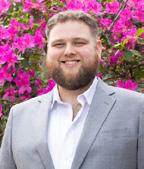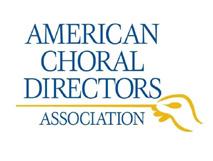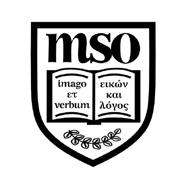THE FLORIDA STATE UNIVERSITY
College of Music presents
The Concert World Premiere of The Saturday’s Sorrow

DaSean Stokes, Composer
Isiah Maxey, Conductor
Wednesday, May 8, 2024
7:30 p.m. | Opperman Music Hall

College of Music presents

Isiah Maxey, Conductor
Wednesday, May 8, 2024
7:30 p.m. | Opperman Music Hall
Dear audience,
Thank you for joining us for the concert premiere of my first opera, The Saturday’s Sorrow. This opera has been a labor of love that the soloists, chorus and orchestra members, administrators, conductor, and myself are excited to share with you. For me, opera holds a special place, but the discovery of Black composers such as Harry Lawrence Freeman, William Grant Still, and Terance Blanchard have been truly transformative. Inspired by those who have paved the way for Black opera composition, I join the ranks of those who strive to tells stories through the traditionally White artform of opera.
The Saturday’s Sorrow is an opera that combines the influences of R&B, gospel, American opera, Italian opera, and German opera into an inventive way to tell the story of Jesus Christ’s crucifixion. One of my favorite parts of this process has been to see the journey from creation to performance. Hearing the music during the initial rehearsal filled me with euphoria as I finally heard the music live. As you watch this concert, I want to share an element to listen for. One element of importance is the first musical phrase of Judas, played by Sebastian Quintero. This musical phrase (musical motif) represents the doubt and betrayal that slowly infects the opera and those in it. From Jesus taking that doubt to the cross, the chorus betraying Jesus, or to the decisions made by Pilate despite the warning of his wife the musical motif serves as a countdown to the inevitable crucifixion that Mary the Mother and Mary Magdelene tell in the story.
This concert is unique because it has been made possible through student-led rehearsals, musical coaching, recruitment, musical betterment of the work, marketing, administration efforts, community engagement, and more . This has allowed students to gain practical experience in the many facets that we have learned in school. I personally welcome you and hope that you enjoy The Saturday’s Sorrow premiere. Lastly, I thank you for supporting new musical works with your attendance here tonight. You are now a part of this journey, and you have my full gratitude.
Sincerely,
DaSean Stokes, composer By: Robert Alexander LeeThe Saturday’s Sorrow by DaSean Stokes (M.A., Arts Administration, ’24) is the story of the passion of Christ from the perspective of Mary the Mother and Mary Magdalene, who surrounded Jesus in his last days. Stokes tells this story with a special emphasis on the perspectives of the women in the narrative which brings about a compelling and novel angle to the story previously left unexplored by similar retellings of the passion. This project materialized first as a composition project, assigned to Stokes during his choral arranging class in his undergraduate studies at Central Methodist University in Fayette, Missouri. His teacher provided a melody with which he was to expand out for choral ensemble, and through this, the beginning sketches of the opera’s first larch chorus number came to life. Earlier sketches were performed publicly for the first time in 2015, as part of CMU’s chapter of Phi Mu Alpha Sinfonia.
Growing up in the Christian church, Stokes felt dissatisfied with traditional depictions and studies of biblical women, and of how women were treated in the churches that he attended. Women in these spaces were considered powerful, life-givers, and leaders in their own right, but at the same time were not uplifted in their important roles outside of Mother’s Day celebrations. When biblical women were discussed, they were either propped up and assigned a cold pious demeanor (as with Mary the Mother, or Mary and Martha of Bethany), or dismissed as sexually promiscuous, folly to sin (as with Mary Magdalene or Eve). From this, Stokes became interested in telling the story of the women in the story of Christ while considering their whole personhood, speculating on the feelings they must have felt as the events unfolded.
The work is primarily a work of nuancing the story of these characters through music. One of the most poignant examples of this is the aria sung by Mary the Mother. Stokes was especially interested in the tragic emotions that Mary must have been feeling as she realizes that the day that was prophesized to her from the very beginning, had finally come. She knew that as the messiah, Jesus was destined to be betrayed and die, as was foretold in Hebrew prophesy. Stokes heard this mother’s distress and despair in the traditional Negro spiritual “Hold on Just a Little while Longer.” Written to represent the struggles of enslaved Black people in the United States, the original text says:
Hold on just a little while longer
You hold on just a little while longer Everything will be alright
Pray on just a little while longer
You pray on just a little while longer Everything will be alright
Hold on when your trials are long Hold on, you got to be strong
Just hold on when your friends are gone And when you’re down and out and you’re all alone You got to keep the faith and just hold on
For Stokes, this opera embodies both the experience of Mary the Mother and the experiences of the inspiring Black women with whom he grew up in the church. As Stokes revisited composing the opera during the COVID-19 pandemic, the Black Lives Matter movement began, largely in response to the deaths of young Black people at the hands of authority figures, especially police. He saw Jesus’s story as recollective of the constant news stories involving young Black men being threatened and killed by police forces in the United States. Just as Jesus’s mother Mary had to worry each day if that was the day that she would lose her son, mothers of Black sons also have to worry each day if that will be the day a police officer perceives their child as a “threat” and takes their life. Sonic memorials of the stories of these young Black people are embedded in the score through musical references such as the inclusion of spirituals and Black cultural music markers that can be seen in syncopation present in the vocal lines, the use of gospel and r&b inspired harmonic progressions, and “groove” rhythms that Stokes uses in the orchestration. .
The compositional project that became this opera has impacted Stokes far beyond the music or performance that will be performed tonight. Stokes said that it became a catalyst of deep personal spiritual growth. This opera allowed him to grow in his faith and experience the reciprocal love between Jesus, his followers, and those around him. For those who have been rejected or hurt by the church in various ways throughout history and today such as women and the queer and Black communities, finding spiritual solace outside of traditional religious settings can be healing. Stokes hopes both the composition and performance of this work will allow all to return to the roots of how we think about religion and Christianity as a community of love.
The opera unfolds amidst a somber Saturday, with the figures Mary the Mother and Mary Magdalene guiding the audience through the events soon to unfold. Commencing with the gathering of the Last Supper, Jesus solemnly foretells the culmination of his earthly journey, leaving his disciples bewildered. Mary the Mother and Mary Magdalene, privy to the drama, beseech Jesus to linger, their prayers are a plea for a delay of his impending fate. As Jesus bids farewell to the assembled, a trio ensues, embodying the emotional entreaty of mother, disciple, and savior. Later that evening, Judas brokers the infamous betrayal with the chief priestess, sealing Jesus’s destiny with the exchange of thirty pieces of silver. The narrative then transitions to the garden of Gethsemane, where Jesus, accompanied by his faithful followers, engages in fervent prayer, grappling with the weight of divine purpose. As the act draws to a close, the ominous shadows of betrayal loom, marking the onset of Jesus’s inexorable path towards crucifixion. Jesus, Peter, Judas, Mary the Mother, Mary Magdalene, and the chorus bring the act to an end as we prepare for the trial to follow.
Following Jesus’s apprehension, Judas wrestles with the torment of his treachery, consumed by remorse. Meanwhile, the trial begins as Jesus stands before Pilate, his innocence is now challenged amidst the court of chief priests, elders, and crowds of other locals. After Pilate’s dismissal of Jesus, he is condemned to endure the mocking of Herod, Jesus remains silent during the indignity of derision as the “King of the Jews.” Pilate, torn between justice and political expediency, presents the fateful choice between Jesus and Barabbas, swayed neither by the entreaties of his wife nor the echoes of her prophetic dreams. In the agony of betrayal foretold, Peter, succumbs to denial, fulfilling the earlier prophecy made by Jesus in the first act. Act II continues with Jesus’s journey to Golgotha, punctuated by the mournful lamentations of Mary the Mother and Mary Magdalene, their intertwined voices echoing the anguish of the impending sacrifice. As Jesus offers a final prayer, he along with Mary the Mother and Mary Magdalene unite one final time, facing together and reliving the imminent crucifixion.
Mary the Mother
Mary Magdalene
Jesus Christ
Simon Peter
Judas Iscariot
Chief Priestess
Pontius Pilate
Pilate’s Wife
Herod the Great
Soprano
Mary-Bradley Knighton
Kendall Ruyle
Anne Elise Teeling
Becky Thompson
Chorus
Alto
Andrea Alderman
Crystal Berner
Erica J Dowling
Sophia Gannaoui
Madison Roths
Tenor
Seaira Anderson
Tobias Deggans
Andy Hunt
Christopher Martinez
Kyle McDonald
Isiah Maxey, Conductor
Violin I
Maya Johnson
Stacey Sharpe*
Sarita Thosteson
II
Olivia Leichter
Albert Wheeler
Caitlin Ecuyer
Leah Shewmaker
Cody Whiddon
DaSean Stokes
Sebastian Quintero
Anne Elise Teeling
Sam Shipps
Becky Thompson
Derek Hale
Bass
Carter Houston
Yasha Foster
Alexei Kovalev
Kris Stam
Logan Williams
Viola
Tyler Goehring
Tyana McGann
Cello
Jaden Sanzo
Layla Feaster
*concertmaster
Violin Double Bass Piano Fernando GarciaIsiah Maxey, current Music Education/Choral Conducting Ph.D. student at FSU, brings a creative and innovative approach to choral performances. He’s been recognized by the Florida American Choral Directors Association and is an active member in the National Collegiate Choral Association. He has served as a Conducting Apprentice at the 2022 Berkshire Choral International in Barcelona and, most recently, Maxy was an Albert C. Yates Fellow at the University of Cincinnati College-Conservatory of Music.


Caitlin Ecuyer, soprano, received first place in the 2019 NATS Competition, won the 2023 Hannah Beaulieu Competition, and was a finalist for the 2023 annual Madame Rose Palmai – Tenser Scholarship Competition. Recent performances include Tom Cipullo’s Glory Denied (Older Alyce), André Previn’s Streetcar Named Desire (Stella Kowalski), and Joseph Turrin’s The Scarecrow (Polly Goodkin). After graduating from FSU with a master’s, Ecuyer will begin her vocal performance doctorate this fall.
Tenor Cody Whiddon, a Tallahassee native, is pursuing a Bachelor of Music in vocal performance at FSU. During his FSU tenure, Cody was a chorus member in Le nozze di Figaro, Tamino in The Magic Flute, and Saboyano/Don Florito in Luisa Fernanda. Additionally, Whiddon participated in The Hunchback of Notre Dame and Les Misérables during 2017 and 2018. After graduation, Cody plans to remain in Tallahassee to prepare for future auditions including a master’s degree.


Leah Shewmaker, mezzo-soprano, is a master’s student at FSU, where she studies with Dr. Evan Jones. She recently performed as Lapáp in Janáček’s The Cunning Little Vixen. She is a graduate of James Madison University, where she earned her undergraduate degree in voice performance and writing rhetoric. Some of her significant roles include Siebel in Charles Gounod’s Faust, Dorabella in Wolfgang Amadeus Mozart’s Così fan tutte, and Jade Boucher in Jake Heggie’s Dead Man Walking.
Currently residing in West Palm Beach, FL, Sebastian Quintero is a graduate of Florida State University with a Bachelor of Arts in Music. He has had multiple leadingrole opera performances with Florida State such as Figaro in Rossini’s Il Barbiere di Siviglia and Hannah Younger in Laura Kaminsky’s As One. His next performance will be as Major Jim Thomson in Tom Cipullo’s Glory Denied.

Anne Elise Teeling is a charming, captivating, and creative coloratura soprano based in Tallahassee, Florida. Frequenting the stage, she recently appeared as Eurydice in Offenbach’s Orphée aux enfers. Previous credits include Stella in Previn’s A Streetcar Named Desire and Barbarina in Mozart’s Le nozze di Figaro. Well-suited to the concert stage, Teeling will join TCC again this spring as the soprano soloist in Haydn’s Lord Nelson Mass. Teeling won the senior division of the Ocala Symphony Orchestra’s 2024 Young Artist Concerto Competition.


Sam Shipps is a current master’s student hailing from Baltimore, Maryland. He completed his undergraduate degree at the University of Texas at Austin. As a BassBaritone, Shipps debuted his Florida State University journey as Basilio inRossini’s Il Barbiere di Siviglia. Most recently, he performed Harašta in The Cunning Little Vixen spring 2024. Favorite pastimes of Shipps include cooking, playing golf, and watching football.
Becky Thompson, soprano, graduated from FSU in 2022 with a bachelor’s degree in vocal performance. Currently, she teaches students in the Tallahassee community a love of education through innovative and engaging educational experiences. Her performance experience includes singing with the Tallahassee Civic Chorale, featured soloist in evensongs and requiems at St. Peter’s Anglican Cathedral, and other Tallahassee community events. She currently studies with Professor David Okerlund.


Texas native, bass, Derek Hale completed his Bachelor’s in voice performance at the University of Texas at Austin and is currently completing a master’s in voice performance at FSU. Recent roles include Bartolo in Le Nozze di Figaro, Basilio in Il Barbiere di Siviglia, and Parson/Badger in The Cunning Little Vixen. This summer he will be attending the Music Academy of the West in Santa Barbara as a studio artist before returning to FSU this fall to begin his Doctorate in voice performance.
DaSean Stokes is a performer, composer, and administrator based in Tallahassee. Currently, Stokes is pursuing an MA in Arts Administration at FSU after earning a Master’s (UW-Madison) in voice performance. During 2019-2020 he was the Advanced Opportunity Fellowship for music at UW-Madison. Noteworthy performances include: Armando Bayolo’s Last Breaths, Bacchus in Richard Strauss’s Ariadne auf Naxos, and R. Nathaniel Dett’s Chariot Jubilee.


Hailing from California, Fernando Garcia received numerous local and state level awards including Panel Honors Certificate of Merit from the Music Teachers Association of California. In 2021 he earned the Mrs. Hong Pham Memorial Recognition Award for New Music Performance for significant overall contribution to the presentation of new music. In 2023 he was the rehearsal pianist for the world premiere of the opera Open Heart Surgery by Jamey Guzman. Currently pursuing a MM in piano performance at FSU, He earned his BM in piano performance at Indiana University.
Rehearsal Pianist
Fernando Garcia
SGA Senate Music Chair
Jona Meier
Sponor Leadership
Matthew Morejon - Phi Mu Alpha Sinfonia
Pauly Herrera - National Assocaition for Music Education
Nicki Howard - National Assocaition for Music Education
Sarita Gustley - American Choral
Directors Association
Tobias Deggans - American Choral
Directors Association
Alex Lee - Medival Studies Association
Ushers
Emily Clark
Robert Clark
Dr. Flor Hernadez
Frankie Hernandez
Program Design consulting
Wendy Smith
Graphic Design/Marketing
Tyler Hast
Program Notes
Alex Lee
Pre-Opera Lecturers
Dr. Rachel Lumsden
Dr. Blythe Reed-Banks
Rachel Shapiro
Claire Terrell
Michelle Shrader
Creative Director
DaSean Stokes
Assistant Creative Director
Bex Pennell
Opperman Music Hall Manger
Nick Smith
Diction Coach
Audra Weathers
Faculty Advisor
Dr. Bernard McDonald



Individual Sponsors
Javacya Arts Conservatory
Tracy Rose
Cathy Harrell
Emma Jenson
Marcia Dukes
Jeremy Reed
Daryl Jefferies
Dawn Hoog
Rachael Killinger
Kayla Branson
Further thanks goes to those who gave anonymously, with their time, professional experience, and any other ways that made this possible


If you are interested in contributing to the future financial needs of the publication and copyright process of this opera please donate via the GoFundMe link with the QR code below.

Thank you to the dedicated staff who have put in countless hours behind the scenes to ensure the success of this production. Without their incredible efforts, today’s performance wouldn’t have been possible, and those involved wouldn’t have had the opportunity to shine. It is the artistry both on and off the stage that makes such performances possible. Furthermore, I want to extend gratitude to each singer, instrumentalist, and the conductor who have trusted in this process and contributed to making this a success for us all.